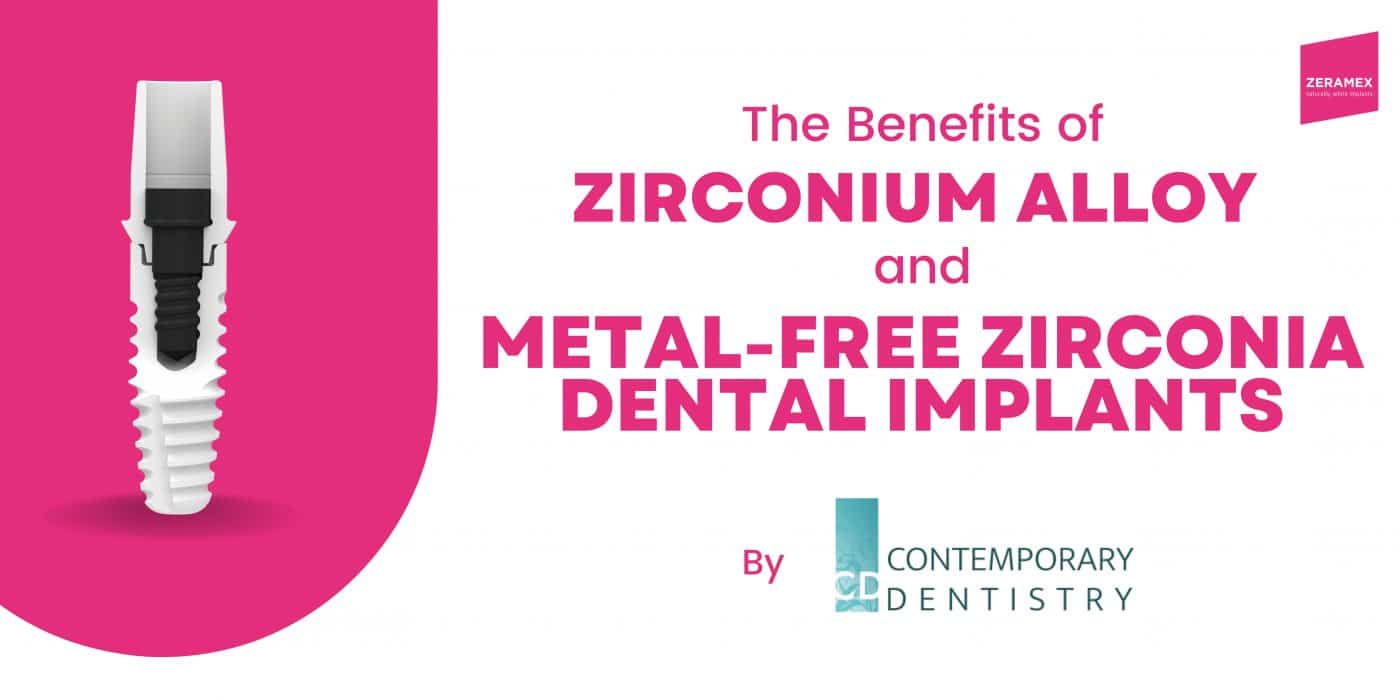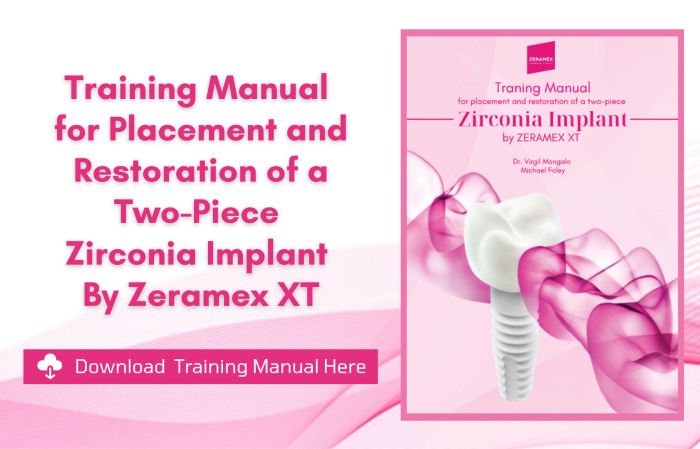The Benefits of Zirconium Alloy and Metal-Free Zirconia Dental Implants
Titanium: Biocompatibility or Just Biointegration?
Titanium became the metal used in dental implants because it showed the remarkable ability for being bonded directly to the bone. This essential discovery, known as osseointegration, is what underlies all of dental implantology.
However, it is a mistake to assume that because the body builds bone around dental implants, titanium is actually biocompatible. If it were truly biocompatible, gum tissue would respond as well to titanium as the bone does, but it doesn’t — getting gum tissue to grow up to and surround titanium implants can be a challenge.
And then there’s the issue of titanium allergies. Studies have shown that about 0.6% of people have a titanium allergy. Titanium allergy can cause unexplained flu-like symptoms (similar to any allergic response) and may cause unexplained dental implant failure.
In fact, more than half of people with titanium allergies experienced an unexplained dental implant failure. It’s likely that other people might experience a more minor reaction to titanium, including less pronounced symptoms or dental implant problems that might be attributed to other sources.
We prefer to avoid these risks by avoiding titanium dental implants altogether.
Better Alternatives
To improve the biocompatibility of dental implants, we use zirconium alloy and metal-free zirconia ceramic implants.
Zirconium alloy dental implants contain 15% zirconium and 85% titanium. They’re actually stronger than pure titanium dental implants. And they’re more biocompatible.
When a dental implant is placed in your jaw, your body will respond to heal your bone, but not all responses are the same. If your body perceives the implant as a potentially dangerous threat, it will trigger an immune response to fight the invasion. (Note: this is what an allergy is: your body’s immune system responding strongly to materials that it perceives as a threat.) Studies show that the body reacts less strongly to a zirconium alloy than they do to pure titanium.
Zirconia allows us to give dental implants without any metal whatsoever. Instead, these advanced dental implants are made of ceramic. It’s the same kind of ceramic that is recommended for many sturdy dental crowns, and it’s actually stronger than titanium. Zirconia has a very high biocompatibility. People who want to avoid metal altogether can use zirconia for their dental implants.
Other Benefits of Zirconia Implants
Because they’re completely free of any metal, zirconia implants also offer additional benefits.
Better appearance: because zirconia implants are white, not silver like dental implants, zirconia implants can give you a more natural appearance if you have thin gums — there will be no grey showing through to give away your dental implants.
Galvanic circuits: Whenever you have two dissimilar metals in your mouth at a time, the two metals will create an electric circuit that is bridged by the ions in your saliva. It’s the same basic principle behind batteries. These electric circuits can be uncomfortable and disruptive of your body function.
Qi: Metal is not supposed to be in the body, so its presence can be disruptive to you spiritual energy. Adding metal dental implants can cause significant interference. Zirconia, though, doesn’t have any metal, so it won’t interfere with the flow of your qi.

